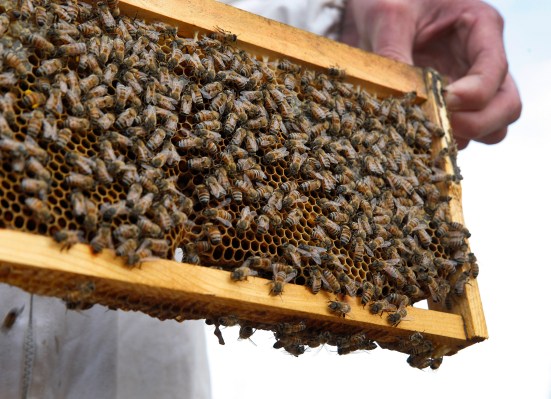By now just about everyone has seen the video of Makoto Koike’s deep learning-powered cucumber sorter. Hobbyists around the world are hacking solutions to their problems using machine learning. The latest, Swedish beekeeper and inventor Björn Lagerman, is building BeeScanning with the help of a team of engineers and researchers. BeeScanning is an app that applies some clever computer vision to ordinary smartphone photos to alert beekeepers to the potentially dangerous presence of Varroa mites in their bee colonies.
Varroa mites are a nightmare for bees and their keepers. They attach themselves to bees and quite literally suck the life out of them. Left unchecked, they can destroy entire colonies. The trick is that bees need continuous monitoring, and traditional methods of identifying Varroa are time-consuming. Varroa multiply exponentially and they can only be stopped if they’re caught early.
This is where the group’s machine learning proficiency comes into play. Because the red mites contrast strongly against the back of the bees, an object recognition algorithm can be used to quickly check batches of bee images for the pests.
The group is in the process of collecting 40,000 images from 10,000 bee colonies around the world. Once the models are trained on the images, Lagerman will benchmark them against data collected from manually counting mites. This messy and time-consuming process involves alcohol washing bees to separate Varroa.
BeeScan provides beekeepers with a quick test to check for Varroa, but it also offers the research community a new tool for studying the mites. Lagerman is emphatic that the current standard chemical treatment of bees isn’t sustainable in the long run and that resources need to be dedicated to identifying resistant bees.
BeeScanning just launched on Kickstarter and the team is looking to raise just $5,000 over the next month with the long-term goal of raising $350,000. The initial cash will finance the creation of the database and help to raise awareness. Lagerman is confident that the project will receive additional support from third parties like the European Innovation Program in time for completion in December 2017.
